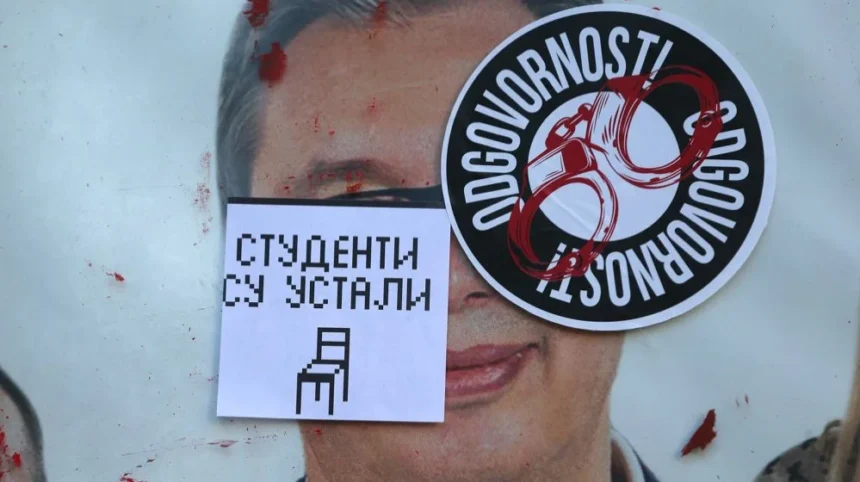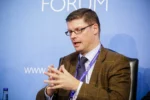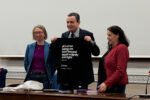The mass protests in Serbia serve as a test for the European Union’s (EU) relationship with the candidate country, according to the Brussels-based European Policy Centre (EPC). While Serbia’s opposition must create a viable political alternative, the EU must take a stronger stance in supporting Serbia’s transition to an institutional order based on democracy and the rule of law, the think tank argues.
EPC’s analysis highlights a deep crisis of political legitimacy in Serbia that can no longer be ignored domestically or internationally. The report criticizes the EU for its long-standing “loud silence” on Serbia’s political developments, accusing it of turning a blind eye to President Aleksandar Vučić’s erosion of democratic standards in favor of regional stability, cooperation in the Belgrade-Pristina dialogue, distancing Serbia from the Kremlin, and ensuring the supply of key raw materials like lithium to European industries.
This approach has led to a noticeable decline in the EU’s influence in Serbia, with EPC warning that supporting so-called “stabilocracies” is unsustainable in the long run. The think tank notes growing divisions within Serbia’s ruling coalition and emphasizes the widespread support for student-led protests.
EPC also states that Vučić is facing increasing pressure to accept a transitional government that would pave the way for free and fair elections. The ongoing mass protests—particularly the March 15 demonstration in Belgrade—could represent a turning point in Serbia’s modern history.
The Brussels think tank further highlights that the Serbian government’s lack of response to the November 1 tragedy in Novi Sad, its suppression of facts, and its failure to act have fueled public anger. The protests reflect broader frustrations over corruption scandals, political accountability, the absence of media pluralism, and the government’s tendency to impose unpopular decisions.
Notably, EPC draws attention to reports that peaceful protests in Belgrade were disrupted by the alleged use of sound-based weapons, with the lack of clarity about the incident further amplifying public outrage.
The think tank concludes that Serbia’s opposition must channel public discontent into a clear political vision, working alongside student movements and other protest groups—and, where possible, engaging dissenting voices within the ruling coalition. This requires uniting around democratic principles to resolve the current political crisis and restore public trust in state institutions.







